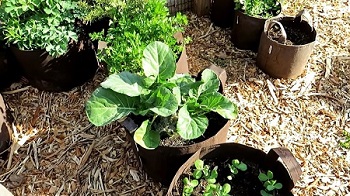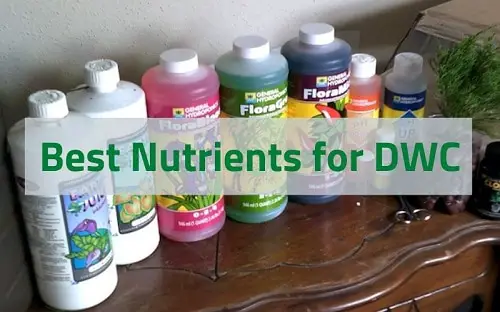Hydroponics is an innovative way of growing plants without the use of soil. Instead, plants are grown in nutrient-rich water solutions. However, in order for plants to thrive in a hydroponic environment, they need the right kind of nutrients. This is where hydroponic fertilizers come in. In this comprehensive guide, we will explore everything you need to know about hydroponic fertilizers.
What is Hydroponic Fertilizer?
Hydroponic fertilizer is a plant food that is specifically formulated for plants grown in hydroponic systems. Unlike traditional fertilizers, hydroponic fertilizers do not contain soil or other organic matter. Instead, they are designed to provide the essential nutrients that plants need to grow in a water-based environment.
Types of Hydroponic Fertilizers
There are two main types of hydroponic fertilizers: liquid and powder. Liquid hydroponic fertilizers are the most common type of fertilizer and are easy to use. Powder fertilizers, on the other hand, are more concentrated and require more preparation before use.
Liquid Hydroponic Fertilizers
Liquid hydroponic fertilizers are designed to dissolve easily in water and are easy to use. They are typically sold in concentrated form and are diluted with water before use. Liquid fertilizers are available in a wide range of formulations and can be tailored to meet the specific needs of different plants.
Powder Hydroponic Fertilizers
Powder hydroponic fertilizers are more concentrated than liquid fertilizers and require more preparation before use. They are typically sold in bags and need to be mixed with water before use. Powder fertilizers are often used by commercial growers who have large hydroponic systems.
Essential Nutrients for Hydroponic Plants
There are six essential nutrients that hydroponic plants need to grow: nitrogen, phosphorus, potassium, calcium, magnesium, and sulfur. These nutrients are essential for plant growth and play important roles in photosynthesis, cell division, and other metabolic processes.
Nitrogen
Nitrogen is an essential nutrient that is required for plant growth. It is a key component of chlorophyll, which is necessary for photosynthesis. Plants that do not get enough nitrogen will have stunted growth and yellowing leaves.
Phosphorus
Phosphorus is another essential nutrient that is required for plant growth. It is essential for cell division and is necessary for the formation of DNA and RNA. Plants that do not get enough phosphorus will have stunted growth and purple leaves.
Potassium
Potassium is an essential nutrient that is required for plant growth. It is essential for the regulation of water balance and is necessary for the formation of sugars and starches. Plants that do not get enough potassium will have stunted growth and weak stems.
Calcium
Calcium is an essential nutrient that is required for plant growth. It is essential for cell wall formation and is necessary for strong cell structure. Plants that do not get enough calcium will have stunted growth and weak stems.
Magnesium
Magnesium is an essential nutrient that is required for plant growth. It is essential for chlorophyll formation and is necessary for photosynthesis. Plants that do not get enough magnesium will have yellowing leaves and stunted growth.
Sulfur
Sulfur is an essential nutrient that is required for plant growth. It is essential for protein synthesis and is necessary for the formation of amino acids. Plants that do not get enough sulfur will have stunted growth and yellowing leaves.
How to Choose the Right Hydroponic Fertilizer
Choosing the right hydroponic fertilizer is crucial for the health and growth of your plants. Here are some factors to consider when selecting a fertilizer:
Nutrient Ratio
Different plants require different ratios of nutrients, so it’s important to choose a fertilizer that matches your plants’ needs. Look for fertilizers that provide a balanced ratio of nitrogen, phosphorus, and potassium (known as NPK), as well as the other essential nutrients.
Type of Fertilizer
As mentioned earlier, there are two main types of hydroponic fertilizers: liquid and powder. Liquid fertilizers are easier to use and are available in a wider variety of formulations. Powder fertilizers are more concentrated, but require more preparation before use. Choose the type of fertilizer that best suits your needs.
pH Levels
The pH level of your hydroponic solution can affect the availability of nutrients to your plants. Some fertilizers are designed to adjust the pH of your solution, while others are not. Make sure to choose a fertilizer that matches the pH level of your hydroponic system.
Cost
Hydroponic fertilizers can vary widely in price, so it’s important to consider the cost when choosing a fertilizer. While more expensive fertilizers may contain higher-quality ingredients, you may not need the most expensive fertilizer for your specific plants.
Brand Reputation
Finally, consider the reputation of the fertilizer brand you are considering. Look for brands that are known for producing high-quality fertilizers and have a good reputation among hydroponic growers.
How to Use Hydroponic Fertilizer
Once you have selected the right hydroponic fertilizer for your plants, it’s important to use it correctly. Here are some general tips for using hydroponic fertilizers:
Follow the Instructions
Always follow the instructions on your fertilizer label carefully. Overuse of fertilizers can be harmful to your plants, so make sure to measure the fertilizer accurately and do not exceed the recommended dosage.
Monitor Nutrient Levels
Regularly monitor the nutrient levels in your hydroponic solution to ensure that your plants are getting the right amount of nutrients. Adjust the nutrient levels as needed based on the growth and development of your plants.
Flush the System
Periodically flush your hydroponic system with fresh water to remove any buildup of salts or other minerals that may accumulate over time.
Consider Supplements
In addition to your main hydroponic fertilizer, you may also want to consider using supplements such as micronutrients or beneficial bacteria to support the growth and health of your plants.
FAQs
Q1. Can I use regular fertilizer for hydroponic gardening?
A1. No, regular fertilizer is not suitable for hydroponic gardening as it can clog the system and damage the plants. It is important to use a fertilizer that is specifically designed for hydroponic gardening.
Q2. How often should I fertilize my hydroponic plants?
A2. The frequency of fertilization depends on the type of plants you are growing and the type of fertilizer you are using. Follow the manufacturer’s instructions carefully and monitor your plants for signs of nutrient deficiency.
Q3. Can I use organic fertilizer for hydroponic gardening?
A3. Yes, organic fertilizer is suitable for hydroponic gardening. However, make sure to choose a fertilizer that is specifically designed for hydroponic gardening and is pH balanced for your plants.
Q4. Can I mix different types of fertilizers?
A4. Yes, you can mix different types of fertilizers. However, make sure to follow the manufacturer’s instructions carefully and monitor your plants for signs of nutrient deficiency or burn.
Q5. Can I reuse the nutrient solution?
A5. Yes, you can reuse the nutrient solution. However, make sure to monitor the pH level and nutrient levels and adjust them if necessary. It is also important to change the nutrient solution regularly to prevent the buildup of harmful salts and minerals.
Conclusion
Hydroponic fertilizers are essential for the growth and health of plants grown in hydroponic systems. When choosing a fertilizer, consider factors such as nutrient ratio, type of fertilizer, pH levels, cost, and brand reputation. Remember to always follow the instructions on the fertilizer label carefully, monitor nutrient levels, flush the system periodically, and consider using supplements as needed.


